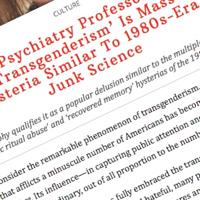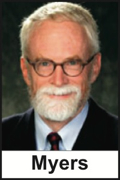Rascals case in brief
In the beginning, in 1989, more than 90 children at the Little Rascals Day Care Center in Edenton, North Carolina, accused a total of 20 adults with 429 instances of sexual abuse over a three-year period. It may have all begun with one parent’s complaint about punishment given her child.
Among the alleged perpetrators: the sheriff and mayor. But prosecutors would charge only Robin Byrum, Darlene Harris, Elizabeth “Betsy” Kelly, Robert “Bob” Kelly, Willard Scott Privott, Shelley Stone and Dawn Wilson – the Edenton 7.
Along with sodomy and beatings, allegations included a baby killed with a handgun, a child being hung upside down from a tree and being set on fire and countless other fantastic incidents involving spaceships, hot air balloons, pirate ships and trained sharks.
By the time prosecutors dropped the last charges in 1997, Little Rascals had become North Carolina’s longest and most costly criminal trial. Prosecutors kept defendants jailed in hopes at least one would turn against their supposed co-conspirators. Remarkably, none did. Another shameful record: Five defendants had to wait longer to face their accusers in court than anyone else in North Carolina history.
Between 1991 and 1997, Ofra Bikel produced three extraordinary episodes on the Little Rascals case for the PBS series “Frontline.” Although “Innocence Lost” did not deter prosecutors, it exposed their tactics and fostered nationwide skepticism and dismay.
With each passing year, the absurdity of the Little Rascals charges has become more obvious. But no admission of error has ever come from prosecutors, police, interviewers or parents. This site is devoted to the issues raised by this case.
On Facebook
Click for earlier Facebook posts archived on this site
Click to go to
Today’s random selection from the Little Rascals Day Care archives….
Click for earlier Facebook posts archived on this site
Click to go to
Today’s random selection from the Little Rascals Day Care archives….
Why prosecutors can’t admit they’re wrong
 March 5, 2012
March 5, 2012
“DURHAM — Tracey Cline could not admit she was wrong….”
Thus begins J. Andrew Curliss’s latest behavioral analysis of Durham County’s latest disgraced district attorney.
Coincidentally, Curliss cites a book I’ve been reading to better understand the rigidly wrongheaded behavior of the Little Rascals prosecutors.
“Carol Tavris, a Los Angeles social psychologist who has researched and written about the behavior and decision-making of prosecutors, said studies show the human brain, when sorting out conflicting beliefs and actions, will engage in a powerful act known as ‘self-justification.’
“It can keep people from admitting they are wrong and can be more powerful and more dangerous than an explicit lie, she said in an interview and in a 2007 book she co-authored, ‘Mistakes Were Made (But Not By Me)’…
“Self-justification is especially concerning in the justice system, Tavris said, because authorities often view themselves as ‘good guys’ doing the ‘right thing’….
“ ‘It’s really, really, really hard to face the reality that you screwed up,’ she said. ‘When we have a view of ourselves as good, competent, ethical, honest people and we are now confronted with evidence that we did something that was incompetent, unethical, immoral or harmful, we have two choices. We can ’fess up – say, “Oh, my God, look at this evidence, what did I do? How can I make amends?” – or, we deny.’ ”
Here’s a recent public ’fessing up that could be a model for errant prosecutors: “I want to express my sincere regret and apology…. It was a terrible mistake, and we knew it was wrong while we were doing it. Instead of getting caught up in it, I should have stopped it.”
Alas, it comes not from Cline – or from H. P. Williams Jr., Bill Hart or Nancy Lamb – but from the NFL coach who oversaw the “bounty” system for disabling opposing players.
From father of bus rider, a dissenting view

April 13, 2016
This week our recently installed Facebook page received a response from the father of one of Junior Chandler’s bus riders. He believes Junior was appropriately convicted and explains why.
Here is our exchange:
I believe Andrew Chandler Junior is guilty of all charges and should not be grouped along with those that you are requesting exoneration.
I was a resident of Madison County, NC in the 1970s and 80s. Not only did Junior transport young children from the day care he also transported handicapped clients from the Mountains of Madison Workshops Mars Hill, NC. My son William B Morris Jr. (Billy) was one of these clients. Billy is a victim of Cerebral Palsy. We noticed a short time after Junior started transporting Billy, he started rubbing his penis when setting on the couch in our living room. His sister Kelly reported this to us. We also noticed he was not coming home at the usual time he had been when other drivers were bringing him home. Sometimes he was an hour or more late. On one occasion three hours late. The workshop was only 20 to 30 minutes away. After we complained to the transportation manager Junior said he was not going to transport Billy any longer because it was too far out of his way.
One day a neighbor was coming home from Mars Hill after shopping and found Billy crawling along Gabriel’s Creek Road about a mile from our home. I complained to the managers again and the only action taken was to change drivers. This was almost a year before Junior was accused of his crimes. I told the transportation management and notified Erwin Adams the county commissioner that I thought something was wrong about Junior.
Later after Junior was convicted I took Billy to Redmond’s Dam on the French Broad River below Marshall, NC where the crimes were committed, he freaked out and tried to get out of the car. He was terrified. I don’t know what he witnessed or what was done to him there because he couldn’t tell me but it had to have been bad.
William B Morris
Mr. Morris, thank you very much for your thoughtful response.
I can think of lots of reasons for a bus driver’s tardiness other than his pausing to commit “satanic ritual abuse” on his passengers…. All those times Junior Chandler was late, and no passenger or parents reported a larger problem?
After visiting the supposed crime site in Madison County, I found it even more inconceivable that Junior – as described in appellate attorney Mark Montgomery’s amended petition for writ of certiorari – “would drive off his route to a parking area next to the French Broad River, strip the clothes off the toddlers, troop the naked children down to the river, put them on a rowboat, proceed to insert various objects into their anuses and vaginas, bring them back to the bus, put their clothes back on and deliver them home.”
Although I see unexplained incidents and conflicting details, I don’t see anything approaching justification for a felony conviction – much less consecutive life sentences!…..
I’m reminded of a comment by a UNC Chapel Hill psychologist who testified against Bob Kelly in the Little Rascals Day Care trial…. He said about the fantastical, nonsensical testimony of the child-witnesses that “There’s so much smoke there, it’s hard to imagine there’s no fire”…. In that case, it has become inarguably clear that there was indeed no fire…. But the conclusions the psychologist drew from the smoke helped to send Bob Kelly to prison for six years….
If there is fire in the case against Junior Chandler, I’m just not able to recognize it…..
Even though we disagree about Junior’s innocence, I appreciate and share your interest in seeing that justice is done.
![]()
Transgender movement compared to hysterias of 1980s and ’90s
 Nov. 21, 2016
Nov. 21, 2016
“Transgenderism would refute the natural laws of biology and transmute human nature. The movement’s philosophical foundation qualifies it as a popular delusion similar to the multiple-personality craze, and the widespread ‘satanic ritual abuse’ and ‘recovered memory’ hysterias of the 1980s and ’90s. These last two involved bizarre accusations of child abuse and resulted in the prosecution and ruined lives of the falsely accused.
“Such popular delusions are characterized by a false belief unsupported by any scientific or empirical evidence and have a contagious quality that overrides rational thinking and even common sense. …”
– From “Psychiatry Professor: ‘Transgenderism’ Is Mass Hysteria Similar To 1980s-Era Junk Science” by Richard B. Corradi at the Federalist (Nov. 17)
Dr. Corradi is professor emeritus of psychiatry at Case Western Reserve School of Medicine, where his opinion of transgenderism is “in no manner shared by this department or by Case Western Reserve or… the American Psychiatric Association or mainstream psychiatry.” A more widely accepted view: “You would think that a professor of psychiatry would know better” by David Cary Hart at the Slowly Boiled Frog (Nov. 18)
But what you won’t see debated among 21st Century psychiatrists and social scientists is Corradi’s characterization of “satanic ritual abuse” as “a popular delusion.” Perhaps one day the American Professional Society on the Abuse of Children will decide to join them.
![]()
Professor yet to decide about McMartin case
 June 28, 2013
June 28, 2013
“Children can lie, but research shows that they do not fabricate detailed descriptions of adult sexual acts unless they have experienced or witnessed them. Studies also show that children have good memories and that even preschoolers can remember key events like sexual abuse. One problem is that repeatedly molested children have great difficulty distinguishing one act of abuse from another and linking abuse to specific dates….
“In the McMartin case, we learned… to minimize the use of leading questions during interviews…. While the verdict comes as a disappointment to the children in the case, their courage and willingness to testify for weeks on end has been a catalyst for change that will protect countless other children.”
– From Believe the Children adviser Civia Tamarkin’s interview with John E. B. Myers, professor at McGeorge School of Law, University of the Pacific, in “The McMartin Nightmare” (People magazine, Feb. 5, 1990)
As his faculty bio notes, Professor Myers has long been “one of the country’s foremost authorities on child abuse,” especially in tracing its historical context, but he seems to have been excruciatingly slow to recognize the fraudulence of “satanic ritual abuse” claims. Although he stopped short of declaring the McMartins guilty, Myers clearly stationed himself in the “child saver” camp, more sympathetic toward serial interviewer Kee MacFarlane than toward the defendants whose lives she devastated.
In a journal article five years later, Myers would acknowledge “growing skepticism regarding children’s credibility,” at the same time warning of a “real danger that the pendulum will swing too far in the direction of disbelief.”
More recently, Myers addressed McMartin in “Child Protection in America: Past, Present, and Future” (2006), crediting it with raising the standard for interviewing, but concluding that “In the final analysis, we will never know what happened at the McMartin Preschool. From the outset, the case divided people into ‘true believers’ and skeptics….”
In “The Backlash: Child Protection Under Fire” (1994) Myers had added a most curious footnote: “I have no opinion regarding the guilt or innocence of any of the McMartin defendants.” How could he – a law professor! – acknowledge the corruption of the child-witnesses’ testimony, yet doubt the defendants deserved a “not guilty” verdict?
Almost 20 years later, I wondered whether Myers might have formed an opinion.
His emailed response: “No idea about guilt or innocence.”











0 CommentsComment on Facebook